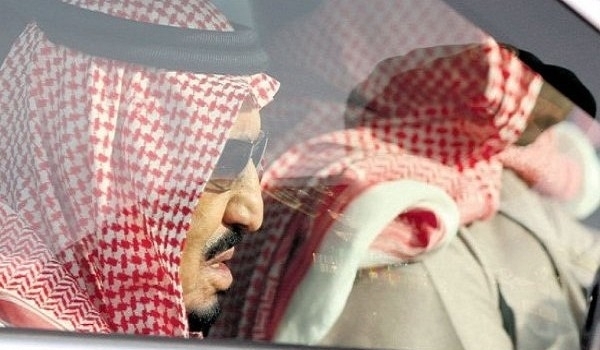
RNA - But the international community in general, and Western governments in particular, have turned a blind eye to the ongoing havoc wreaked in Syria, Iraq and Yemen, where Saudi Arabia is directly or indirectly involved. Press TV has asked two political experts to give their analyses of why Saudi Arabia is acting with impunity.
Managing editor of Veterans Today, Jim W. Dean, said the United States and its allies are supporting the Saudi kingdom despite being fully aware of its financial and military support for Takfiri terrorists across the Middle East, and that is because the Western powers are afraid of the growing Russian and Iranian influence in the region.
“The US and Europe were all on board with [the Saudis in sponsoring terrorism in the region] because they say that would reduce [in the] long term, tens of billions of dollars falling into Russia, which will help them modernize their country and their military,” Dean explained.
“They (the US and its allies) are afraid of Iran because they know Iran has the society and the energy... and they (Iranians) can dominate the Mideast in terms of their economic ability, which is huge,” he analyzed.
Dean argued, “It’s a classic geopolitical battle and all of these people that are getting killed” are victims of American hegemonic agenda in the region.
The Saudis have their “big brother” in the West, which is the US, and the two sides have made deals for oil and money, which means America would guarantee Saudi security, he said, adding that is the root of the problem.
“Aiding and abetting terrorism is an international felony in countries all over the world, but it’s not enforced for Saudi Arabia. Part of the problem is there is no court that will do it and the UN really won’t do anything about it,” he pointed out.
According to Dean, the Saudi-backed terrorists have killed thousands of civilians in Iraq and Syria, but “the Saudis are getting away with it because they not only have Western governments supporting them, but the media is [also] involved in it.
“Saudi Arabia cannot be taken down unless you really go after everybody that is involved” including Turkey, he mentioned.
The political expert further compared the roles of the Islamic Republic and Saudi Arabia in the Syrian conflict, and noted, “Iran wouldn’t be in Syria, if it hadn’t been under attack by the West and this terrorist proxy group.”
In February, Saudi Foreign Minister Adel al-Jubeir said Riyadh is ready to send ground troops and special forces to Syria under the pretext of supporting the so-called US-led coalition against Daesh terrorists.
Meanwhile, Michael Lane, the founder of the American Institute for Foreign Policy, said there is no doubt that Saudi Arabia has its own foreign policy objectives for which it has instigated the war in Yemen, tried to reduce Iran’s influence in the region and sought to pursue a regime change policy in Syria.
“In pursuit of those goals, countries, and Saudi Arabia in particular, will engage with certain proxies,” Lane noted. “It is not unusual and certainly Saudi Arabia is not exempt. When you find proxies who will do your bidding on the ground, you will align yourself with unsavory characters” and this type of coordination has ended up in nurturing “terrorism.”
“In Saudi Arabia’s view, it’s a lesser problem to have these war crimes and these terror acts committed, if the ultimate goal of reducing [Syrian] President Assad’s influence or even driving him from power and creating a Syria that is [friendlier] to Saudi Arabia is ultimately achieved,” he explained.
Since March 2011, Saudi Arabia, Qatar, Turkey and their Western supporters have been providing support to militant groups fighting to overthrow the country’s democratically-elected president.
847/940